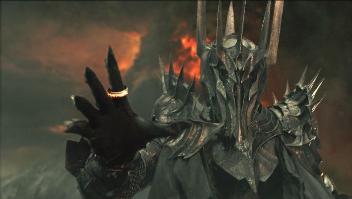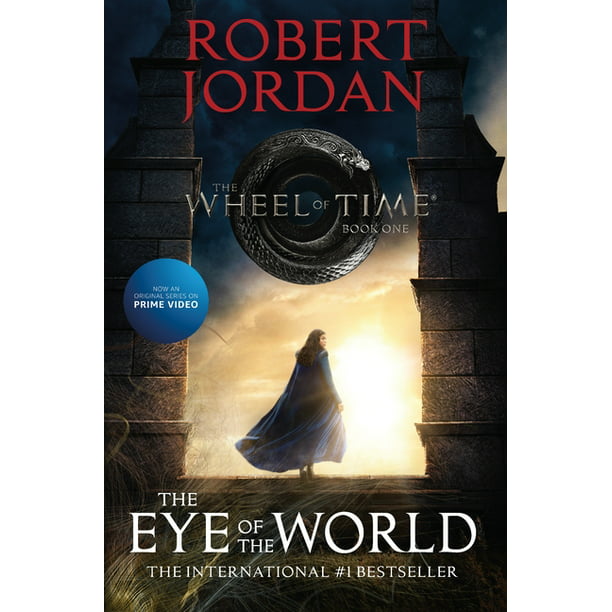The Art of J. R. R. Tolkien's Lord of the Rings--the proem
Fellowship of the Ring, Ch 1 "A Long-Expected Party", part one (age, WWI)
Fellowship of the Ring, Ch 1 "A Long-Expected Party", part two (The Hobbit, sequel and comparative mirror, character, foreshadowing)
- - -
I need to address several threads I started in part two, but what is the point of this opening, anyway?
It establishes the status quo of the story and does so in what probably felt like a small English village. In other words, apart from their visible differences, they should have felt like an average citizen who journeys into the strange other world, which makes this a portal fantasy: going from the real world into one of fantasy.
Tolkien spends a lot of time developing the shire, so that he doesn't start with the protagonist, or even the guy who starts the protagonist on his journey.
It does seem to start with Bilbo, but whose perspective are we
in? Not Bilbo's. You can tell by the adjectives describing Bible I
discussed in part one: "peculiar" and "well-preserved." The town is
taking our hero, down a peg (cruelly, perhaps). Tolkien begins in humility: small town talking about a man whom readers of The Hobbit know has done great deeds, but who is humbled.
There is some distance from these citizens, so we are immersed in an omniscient narrator who doesn't reveal himself, but the first clear perspective we encounter is the shire's.
Tolkien's modus operandi seems to develop the shire both in the breadth of recent history, but also width of the shire, drawing on various perspectives: those opposed to and those in favor of Bilbo. While Frodo's mentioned as heir, the next perspective we get is old Ham Gamgee, who gives us a better perspective on Bilbo because he's actually close to Bilbo. Ham is a great word in connotation and denotation: hog, stocky build, performer who exaggerates, humor (a name for the meat of a pig). Both "ham" and "gam" refer to the leg, and both rhyme in an obvious humorous way. Ham could be short for "hamlet" which makes him also a representative of the village. This interpretation is backed up by how the people respect his opinion.
When we get to his youngest offspring, Sam, the rhyme's still there, so some humor remains like a distant echo, but it removes the obvious humor of ham/gam. Same carries his progenitor's traits with him: humorous yet respectable.
In The Hobbit, we get the rumor that someone in Bilbo's ancestry is fairy, which explains their desire of adventure. One might point to this and say, "Ah-ha! Genetic destiny." But surely we all acknowledge that genetics do have something to do with destiny based on genetic twin studies in which try to understand how much of who we are is nature (genetic) and how much is nurture (how we are raised). Moreover, it is a rumor--just a possibility, but never fully established.
It makes sense to make the protagonists of a children's book small and weak since children themselves are small and weak. But why would someone do so in an adult novel? This is part of what makes this series so powerful and remains unique despite so many who have trod in Tolkien's footsteps.
In most fantasies and throughout the superhero genre, we have people who are super-powerful, or who become powerful. In The Lord of the Rings, the main characters are all small and comparatively weak. They sometimes have advantages, sometimes not. Anyone who wants to critique Tolkien's work has to grapple with this. Whenever the protagonists might think they are important, they are put in their place: small in a very large world. Yet they remain the keys to solving the destruction of evil. How many current fantasies grapple with this paradox? Most fantasies wants their heroes to be super. Tolkien defies this and, because of this, remains unique.
Why didn't Tolkien keep Bilbo as the protagonist? Surely that would have been simpler. Have Gandalf show up, and have the dynamic duo ride off together to solve the world's problems. Two eternal beings take on a host of evil in the world: one fireball-wielding wizard dude and invisible small guy who's quick with his sword. Typical superhero fantasy.
Tolkien must have had a purpose in doing what he does, and I suggest that purpose is in the paragraphs above. Yes, Bilbo's important, but he's small and kept humble. He's been morally crippled by all the power in his life. Anyone could be crippled by it.
Also, don't forget the title: Fellowship of the Ring. You could say that Tolkien intended one book, but he probably came up with that title himself. Leaving out "fellowship" leaves out a critical understanding of the work as a whole. It isn't going to be one person who saves the world but a team working together. There's not a good definition of the term that captures the need and power of fellowship as it is used in Tolkien's faith, but take a look all of the fellowships within Tolkien's work: often motley (different races coming together), otherwise down and disarrayed people who unite to perform a great deed.
If there's no nuance in a critique of Tolkien, jettison it. They don't understand the narrative on a basic level.




